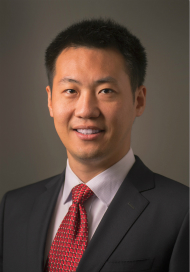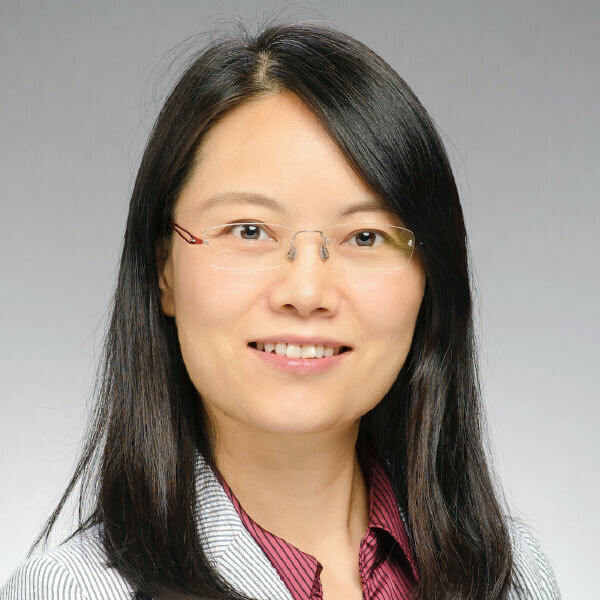Meng Jiang, associate professor of computer science and engineering, and Xiangliang Zhang, the Leonard C. Bettex Collegiate Professor of Computer Science and Engineering at the University of Notre Dame, have been appointed co-directors of the Foundation Models and Applications Lab (FMAL) within the Lucy Family Institute for Data & Society.

Serving as a nexus for collaborations, the FMAL’s mission is to enhance human potential through AI systems. The new lab brings together an interdisciplinary team of Notre Dame faculty and student researchers dedicated to developing large deep-learning networks and adaptable training platforms to tackle societal challenges across various fields, including science, health, education, and the humanities.
“Foundation models are the building blocks for modern artificial intelligence systems,” said Jiang. “At FMAL, we’re focused on ensuring these powerful tools can be trained for diverse tasks – from accelerating material discovery to supporting mental health care. The key challenge is adapting the foundation models to perform reliably across diverse tasks while maintaining accuracy, usefulness, and safety.”
Jiang’s Data Mining towards Decision Making (DM2) Lab, within the FMAL, focuses on developing AI systems that can autonomously generate novel concepts for scientists, including discovering improved polymer materials and planetary exploration. His work will also build on his National Science Foundation (NSF) CAREER award to evaluate and improve AI systems that can assist people with mental health conditions.

The FMAL also develops models to assist professionals in real-world environments. Zhang, who also directs the Machine Intelligence and kNowledge Engineering (MINE) Lab, is collaborating with Olaf Wiest, the Grace-Rupley Professor of Chemistry & Biochemistry and Nitesh Chawla, the Frank M. Freimann Professor of Computer Science and Engineering and founding director of the Lucy Family Institute for Data and Society, to build a foundation model that assists with identifying molecule structures and can predict the reaction of molecules when placed together, which shows promise in advancing AI’s uses for general chemistry as part of the NSF Center for Computer Assisted Synthesis.
Zhang emphasized that the lab’s approach is to develop models and applications that empower scientists and professionals.“Our goal is to design AI assistants that can learn from, understand, and ultimately enhance human decision-making. Through our collaborations with various Notre Dame entities and universities, we are developing models that will help us and help society.”
“The new Foundation Models and Applications Lab at the Lucy Family Institute is extending the pathways of AI innovation to collaborators across campus and around the world,” said Chawla, “By building bridges with researchers across fields and domains, Meng and Xiangliang are harnessing AI to accelerate the Institute’s mission to not only make fundamental advances but also address some of society’s most vexing challenges.”
To learn more about FMAL, please visit the Lucy Family Institute for Data & Society website.
Contact:
Christine Grashorn, Program Director, Engagement and Strategic Storytelling
Lucy Family Institute for Data & Society / University of Notre Dame
cgrashor@nd.edu / 574.631.4856
lucyinstitute.nd.edu / @lucy_institute
About the Lucy Family Institute for Data & Society
Guided by Notre Dame’s Mission, the Lucy Family Institute adventurously collaborates on advancing data-driven and artificial intelligence (AI) convergence research, translational solutions, and education to ethically address society’s vexing problems. As an innovative nexus of academia, industry, and the public, the Institute also fosters data science and AI access to strengthen diverse and inclusive capacity building within communities.